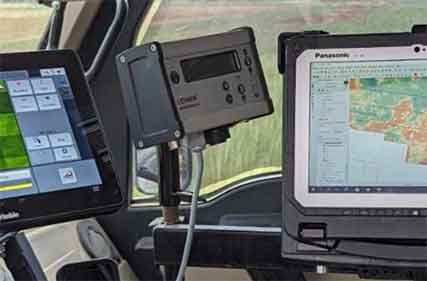 Charles Sturt University will spearhead a new era in Australian agriculture through advanced artificial intelligence (AI) and cybersecurity by leading the AgriTwins project.
Charles Sturt University will spearhead a new era in Australian agriculture through advanced artificial intelligence (AI) and cybersecurity by leading the AgriTwins project.
The University’s Artificial Intelligence and Cyber Futures Institute (AICF) and the Gulbali AgriPark will lead the AgriTwins project part of CSIRO’s Next Generation Graduates Program.
Australia’s national science agency, CSIRO, has estimated that Australian industries will need as many as 161,000 new AI and emerging technology workers by 2030 and is committed to supporting and training students through its Next Generation Graduates Program.
The program will fund 11 research students; eight PhD students, two master’s students, and one Honours student.
By providing in-depth training and facilitating collaboration among students, researchers and industry professionals, the program helps build a competitive and capable workforce that will drive the growth of the Australian tech sector across various industries in need.
Executive Director of the AICF Professor Ganna Pogrebna said the Institute is proud to lead the AgriTwins project.
“This initiative, in collaboration with Gulbali AgriPark and other esteemed stakeholders, represents a jointly-funded $1.59 million investment – by CSIRO, industry and partner universities – to take a significant leap in the use of emerging technology in the agricultural sector,” Professor Pogrebna said.
“AgriTwins is not just a research endeavour; it is a visionary project set to revolutionise sustainable and technologically advanced agriculture in Australia.”
AgriTwins is designed to confront the agricultural sector’s pressing challenges through an innovative blend of AI, machine learning and cybersecurity. The program’s primary objective is to integrate digital and quantum twins, ensuring a cyber-secure future for the agricultural industry.
This initiative is crucial in enhancing Australia’s competitive edge in global markets and ensuring decision superiority in agricultural practices and innovations.
“As we commence this project, we hope that AgriTwins will become a blueprint for the future of sustainable, cyber-secure agriculture in Australia and beyond,” Professor Pogrebna said. “We are keen to embark on this collaborative journey and reshape the landscape of agriculture, one innovation at a time going hand-in-hand with regional and rural communities.”
A pivotal aspect of AgriTwins is its emphasis on regional Australia. Professor Pogrebna said developing research pipelines outside major urban centres is essential for fostering collaborative environments across consortium universities and industries.
“The program’s regional focus ensures practical, hands-on experiences for students and researchers, applying cutting-edge technologies to real-world agricultural challenges,” she said.
“It brings the benefits of technological innovation to the core of Australian agriculture, revitalises regional business models, creating job opportunities and ensuring advancements are not confined to urban centres.”
The AgriTwins program’s success is anchored in effective collaboration among nine industry, four academic partners, and CSIRO.
Executive Director of the Charles Sturt Gulbali Agripark Mr Nick Pagett said through the Gulbali AgriPark initiative, the program has forged partnerships with Australian industry leaders in AgriTech, bridging the gap between theoretical research and practical agricultural challenges.
“This project is paving the way for a revolution in sustainable and technologically advanced agriculture in Australia,” Mr Pagett said.
“This initiative is not just about research; it’s a commitment to shaping the future of our industry, ensuring a cyber-secure and digitally integrated landscape. Together, we are cultivating a competitive edge for Australia in global markets.
“Our cross-disciplinary collaboration extends to several academic institutions, including the University of New South Wales, University of Queensland and the University of Sydney.”
The benefits of AgriTwins extends from the diverse expertise of its researchers, ranging from cybersecurity specialists to agricultural technology experts.
AgriTwins will use emerging technologies across various applications, including viticulture disease prediction, carbon emission modelling and advanced crop management.
This combination of skills ensures the program addresses current agricultural challenges and anticipates future needs, aiming to create a sustainable and resilient future for Australian agriculture.
Mr Pagett said the AgriTwins initiative, as part of the Next Generation Graduates Program, represents a significant step forward in positioning Australia at the forefront of sustainable and technologically advanced agriculture.
“By focusing on regional development and collaborative research, we are not just innovating; we are empowering communities as well as future interdisciplinary researchers while enhancing Australia’s global agricultural standing,” he said.
-CSU
